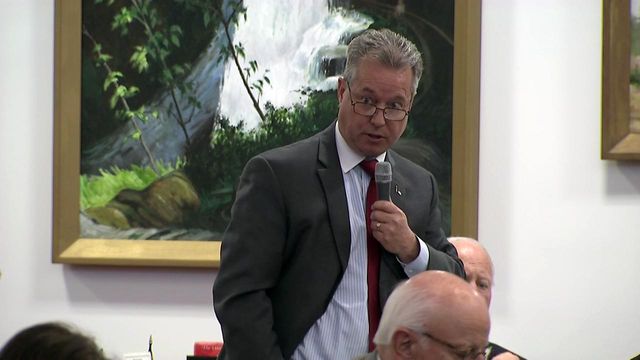Veto fight ahead over elections board rewrite
State legislative leaders and Governor Roy Cooper are likely headed for another veto fight, this time over a measure that would reconfigure the state's oversight of elections, ethics, and lobbying. State lawmakers sent the bill to the governor's desk Tuesday.
Posted — UpdatedIn December 2016 during a special session, state lawmakers approved a proposal to do away with the existing State Board of Elections and replace it with the state's ethics board, half appointed by the governor and the other half appointed by state lawmakers. That law also gave Republicans control of all local elections boards in each election year.
Cooper sued to block the law, saying it violated the separation of powers in the state constitution, and a three-judge panel agreed last month.
It would still put what's now the State Ethics Commission in charge of elections, campaign finance and lobbying regulation. The governor would appoint all eight members of the new board – four from each party – although he or she would be limited to nominations submitted by the parties. He or she would also have the authority to remove any board member who misses more than two consecutive meetings.
"We believe that combining these functions under one board is the better way to go forward in trying to administer elections, campaign finance, lobbying and ethics," said House sponsor Rep. David Lewis, R-Harnett.
Senate Bill 68, like the earlier law, increases the size of county boards of elections from three to four members, two from each party, which critics warn will be a recipe for "deadlock and dysfunction." But supporters of the measure say tied votes can be resolved by the state board with a simple majority vote of five members.
Lewis said having equal party representation on local and state elections boards will increase public confidence that their elections are being run in a bipartisan manner.
The final version of the proposal passed the House with little debate Tuesday afternoon, 72-42, and quickly moved to the Senate.
Senate Democrats complained that the creation of the new Bipartisan Board of Elections and Ethics Enforcement wasn't a bipartisan effort – either in December or now.
"This is bipartisan in name only," said Sen. Angela Bryant, D-Nash.
Bryant said some provisions in the legislation were practically "hyperpartisan," such as giving GOP the chair of elections boards during every major statewide election and allowing state elections director Kim Strach, whom Republicans appointed in 2013, to remain in her position. Bryant also noted the bill doesn't spell out how tie votes on some types of decisions will be resolved.
"We're really setting up a structure for partisan deadlock," she said.
Sen. Andrew Brock, R-Davie, said he was confident that board members would put the process above party politics.
"The people of North Carolina want to see a fair process and don't want one with a leg up over the other," Brock said.
The Senate then voted along party lines 29-13 to approve the bill, sending it to Cooper.
Cooper has already said he intends to veto the measure, calling it a GOP attempt to curtail voting rights.
Related Topics
• Credits
Copyright 2024 by Capitol Broadcasting Company. All rights reserved. This material may not be published, broadcast, rewritten or redistributed.





